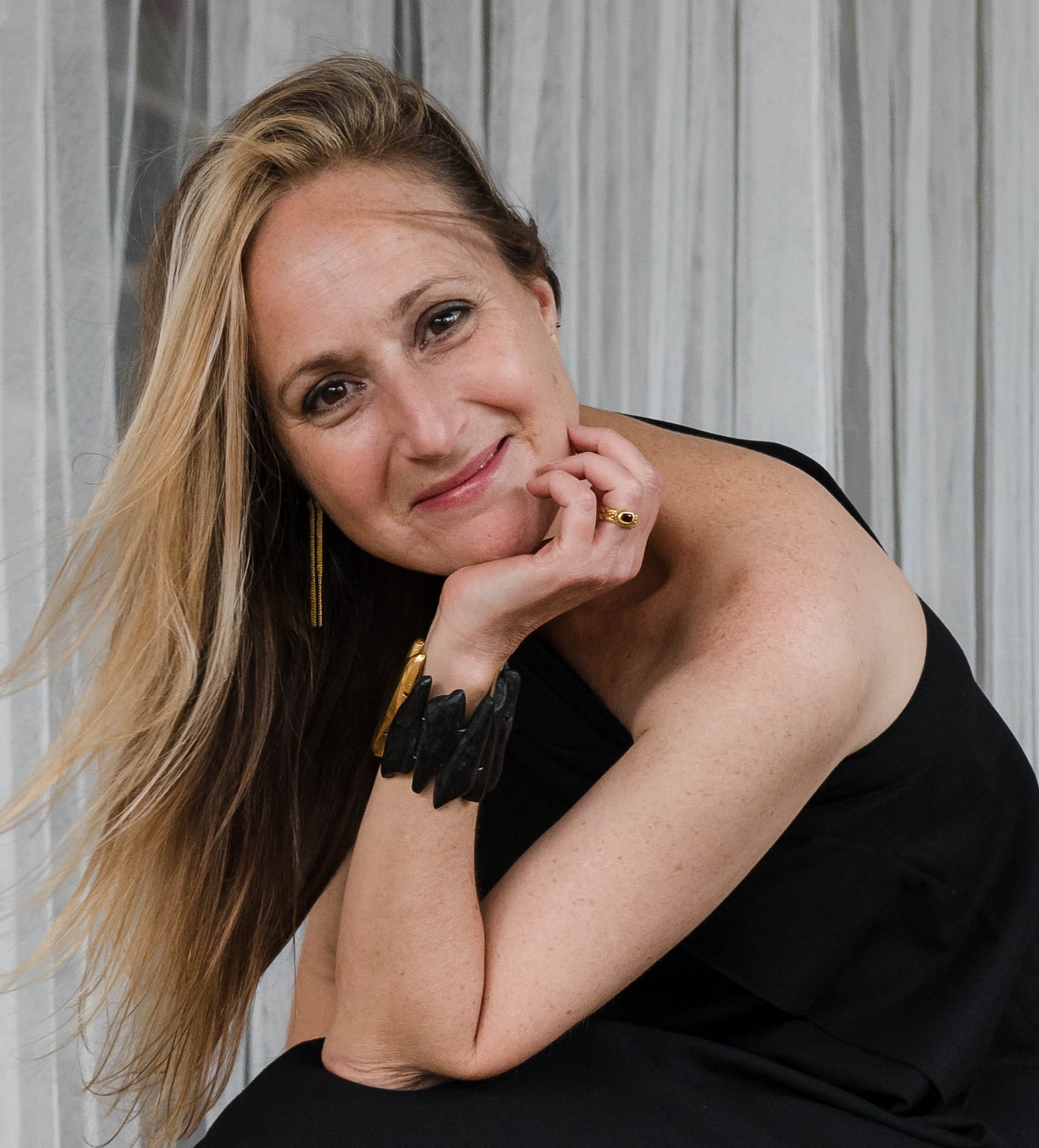Heather Comes Home
Heather Raffo
Chaldean American playwright Heather Raffo brings her play to Michigan
By Weam Namou
Noura, a play about the struggles of a middle-class Chaldean wife and mother living in New York, is coming to Michigan. It had its 2018 world premiere at Shakespeare Theater in Washington, D.C. before moving to Abu Dhabi then on to New York’s Playwrights Horizons. It has been performed in Cairo, San Diego, San Francisco, and Minneapolis as well. The production at the Detroit Public Theatre is the first in an Iraqi- and Chaldean-specific community.
In its development stage, Noura was publicly workshopped in 2016 at the Arab American National Museum.
“We did two readings to get feedback from Michigan’s diverse Middle Eastern community,” said award-winning playwright and performer Heather Raffo. “We wanted the audience to tell us what things they found most moving and what things most confusing. Then we went back and revised accordingly.”
During her research, she even went to a Chaldean convent and spoke to the nuns, all of whom were born in Iraq. Raffo, whose father is Chaldean, was born and raised in Michigan and attended the University of Michigan. She once visited the house where he was born in Mosul and the churches her grandfathers had carved from marble.
“I had almost 100 family members in Iraq at the start of the 2003 war,” she said. “I now have just two cousins living there. My family is scattered across the world.”
The workshops were informative in many ways, including how the Iraqi community would perceive the relationship between Noura’s Chaldean family and their best friend Rafa’a, a Muslim Iraqi.
Mattico David
“Stories my father told me were of a more inclusive Iraq,” she said. “Iraq had a society with shifting tensions throughout its history, but communities managed to live side by side for centuries.”
The play raises the questions: How do we pursue a very necessary sense of belonging, but not at the expense of turning tribal? How can we embrace our own individuality while upholding a multi-faceted identity?
Noura takes place at Christmas in the New York apartment where the title character lives with her husband and young son. Having given up everything to free themselves from the brutal tyranny of ISIS, Noura and her family are now American citizens who are determined to reinvent themselves.
Noura’s husband, Tariq, is played by Assyrian American Mattico David. At the Washington, D.C. premiere in 2018, he played Rafa’a, the Muslim friend. Born in Flint, David was impressed with the play. “It was the first time I read a play about Iraqi Christians,” he said. “It felt great to be a part of this story.”
Noura was provoked by many things, including feminism in the Middle East. It raises the questions: Can women be fully realized in all of their roles? Can they belong equally in each? Or is it inevitable that in trying to have a career, being a wife, a mother, a daughter – perhaps to aging parents – that one of these roles will become unsustainable? In the demand of playing roles for so many others, is it inevitable that we question who we really are ourselves?
“There’s a whole history of Arab feminism,” Raffo said. “It’s just different from western feminism. When I started writing Noura, we weren’t talking as publicly about the things I was feeling.”
At that time, there was the sense that a female president was possible, and that women had achieved equality in workplaces.
“Now we are in a post-election, post-Harvey-Weinstein world, and conversations are moving from the secretive to the mainstream,” she said.
“I and the theatre are most interested in creating dialogue across the African American, greater Midwestern and vast Arab communities of this region,” said Raffo. “Bringing this Chaldean story into the heart of Detroit will be an amazing opportunity to build bridges.”
The Detroit Public Theatre was founded eight years ago, and for its first five years, was inside the Detroit Symphony Orchestra, inside Allesee Hall.
“It was established because we recognized there was a hole in the cultural landscape of Detroit and we wanted to create a world-class theatre that was on par with the other major culture institutions,” said Courtney Burkett, one of the co-founders and co-producing artistic director. “We wanted to make art and tell stories of, by, and for Detroit.”
The theatre works with both Detroit artists and national artists. It outgrew the initial space quickly as their audience grew and their need for programming grew. Therefore, they recently opened a brand new state-of-the-art 200 seat black box theatre in midtown Detroit. The historic over-100-year-old building was converted from a garage.
“Detroit has a large Arab American community,” said Burkett. “Historically their stories have not been told in our theatres, so we’re excited to be doing Heather’s play at this time.”
The “pick-your-price preview performances” for the play are November 16 and 17, as the theatre wants to make sure it is accessible cost-wise to everyone, paying as low as $5 for the show. Opening night is November 18 and it will run through December 18.
Ticket information may be found at https://www.detroitpublictheatre.org/season-eight-8


